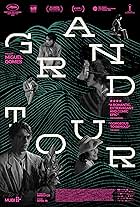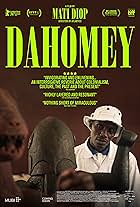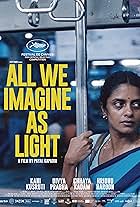A self-portrait of the director and his oeuvre, revisiting in free-form more than 40 years of the author's filmography.A self-portrait of the director and his oeuvre, revisiting in free-form more than 40 years of the author's filmography.A self-portrait of the director and his oeuvre, revisiting in free-form more than 40 years of the author's filmography.
- Awards
- 1 nomination total
Adam Driver
- Self
- (archive footage)
Oksana Shachko
- Self
- (archive footage)
- Director
- Writer
- All cast & crew
- Production, box office & more at IMDbPro
Featured reviews
Who am I writing this review for? This 42 minute long cinematic essay is a film that will likely sell less than 5-10K tickets in the US, if that. Will I even get one reader? And yet this is a movie you feel like writing about.
"It's not me" is the most Godardian film by a filmmaker other than Jean-Luc Godard. We have to give points to Godard (and Chris Marker) for inventing in the second half of the XX century the cinematic essay form. Leos Carax openly pulls from that template, down to Godard's (in)famous words on screen, to make a film aimed at answering a question that Paris' Centre Pompidou asked him for an exhibition that eventually did not take place. Something like "Where are you at, Leos Carax?"
"It's not me" is much more than a tribute to Godard. While the form is there, Carax brings in the full depth of his art: his thinking, his unique ability to add layer upon layer of meaning to each scene to the point that you are never quite sure you understood any of his movies fully, but every time you watch them you feel you get closer and that your perceptual capabilities have expanded.
Take the title of this film: "It's not me". What does it mean? Is it a childish "it's not my fault", maybe referring to one omnipresent message in the film that Carax is a product of his time (the XXth century, him being "Jewish, white, male, heterosexual" as he describes himself in the film, likely as a sarcastic take on today's identity obsessions)? Or is the title saying that what you are seeing on this film is not an answer to the question that was asked, that you are not seeing Leos Carax in this film? Then what are you seeing? Godard? Carax's work as distinct from him as a person? Or is the person saying "It's not me" the viewer, meaning Carax accepts the disconnect of his film from the viewer? Or, in a typical Godardian play with words, if you just added the word "for", it would become "it's not for me", as the mass audience would likely think of this film?
This is but an example of the multiple layers of meaning in this film. It will make you think, and think hard, and you will never get the right answer, as there probably is more than one or maybe none.
But in the meantime you will see a composition like no other. And you will expand your horizons. And enjoy images that create meaning, because what most distinguishes Leos Carax from other filmmakers is his unwavering belief in the creative power of images in and of themselves.
As always with Leos Carax, "It's not me" is an experience like no other.
"It's not me" is the most Godardian film by a filmmaker other than Jean-Luc Godard. We have to give points to Godard (and Chris Marker) for inventing in the second half of the XX century the cinematic essay form. Leos Carax openly pulls from that template, down to Godard's (in)famous words on screen, to make a film aimed at answering a question that Paris' Centre Pompidou asked him for an exhibition that eventually did not take place. Something like "Where are you at, Leos Carax?"
"It's not me" is much more than a tribute to Godard. While the form is there, Carax brings in the full depth of his art: his thinking, his unique ability to add layer upon layer of meaning to each scene to the point that you are never quite sure you understood any of his movies fully, but every time you watch them you feel you get closer and that your perceptual capabilities have expanded.
Take the title of this film: "It's not me". What does it mean? Is it a childish "it's not my fault", maybe referring to one omnipresent message in the film that Carax is a product of his time (the XXth century, him being "Jewish, white, male, heterosexual" as he describes himself in the film, likely as a sarcastic take on today's identity obsessions)? Or is the title saying that what you are seeing on this film is not an answer to the question that was asked, that you are not seeing Leos Carax in this film? Then what are you seeing? Godard? Carax's work as distinct from him as a person? Or is the person saying "It's not me" the viewer, meaning Carax accepts the disconnect of his film from the viewer? Or, in a typical Godardian play with words, if you just added the word "for", it would become "it's not for me", as the mass audience would likely think of this film?
This is but an example of the multiple layers of meaning in this film. It will make you think, and think hard, and you will never get the right answer, as there probably is more than one or maybe none.
But in the meantime you will see a composition like no other. And you will expand your horizons. And enjoy images that create meaning, because what most distinguishes Leos Carax from other filmmakers is his unwavering belief in the creative power of images in and of themselves.
As always with Leos Carax, "It's not me" is an experience like no other.
Did you know
- ConnectionsReferences Sallie Gardner at a Gallop (1878)
- How long is It's Not Me?Powered by Alexa
Details
- Runtime41 minutes
- Color
Contribute to this page
Suggest an edit or add missing content


































